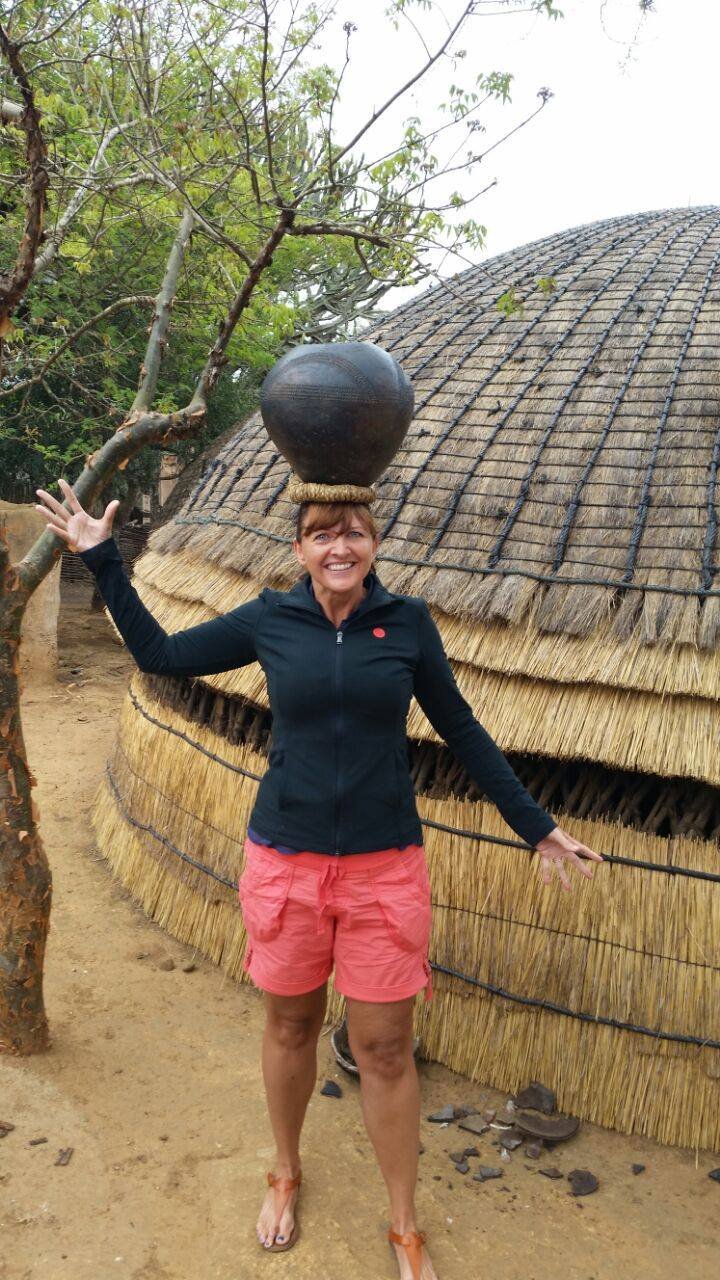Our story begins in Canada in 2009. Joelle Gordon, our founder, was working at a large investment bank in Calgary. She was not a great investment banker, in part because she was happier teaching people about money and investments than she was at selling the investments. Jo, was not where she should be, and she knew it. So, she started to look at ways to use her finance background for good.
Mohammed Yunus’s microfinance movement was getting a lot of traction with the international development community, and the combination of banking with training and support for women who had small businesses was right up Jo’s alley. So, she started to read everything that she could on the topic and enrolled in the Bankers Without Borders webinar series as well as completing a Professional Certificate in Micro-Finance with the Micro-Finance Association.
While at a Results Canada Christmas party that December, Jo met a Rotarian, with the Calgary West Rotary Club. He was talking about Liberia, a small West African country that was recovering from over 20 years of civil war. When he mentioned that the Rotary had just approved a grant for $250,000.00 to a local Liberian micro-credit organization, Jo was intrigued. He then asked if she would be interested in going to Liberia, to work with the NGO to establish the systems for granting loans and collecting the payments. It was like a Christmas wish come true! Lots of research and two months later, Jo kissed her son, and the rest of her family good-bye and took a taxi to the airport for a three-month contract West Africa. Next stop, Monrovia, Liberia!
Landing in Monrovia two days later, felt like coming home.
Working with the market women of Liberia, teaching them how to make and save more money was the most rewarding experience of her life. There was only one glitch. Every week women were coming to Jo to pull out all of their savings because someone was sick, someone was hurt in the hospital, or someone had died.
Here is an important thing Jo learned about poverty. When an individual who lives in poverty begins to make more money, they are expected to pay for the needs of others. This is not limited to family members. Indeed, it includes friends, and community members. The result is the inability for people to work their way out of poverty when others are holding you back.
Jo, who thrives on solving problems, decided to look into why people were sick and dying. Eight times out of ten the cause of sickness and dying was unclean water. Frankly, this seemed crazy. There were so many people and organizations working in Liberia to provide water to the people who needed it the most. The reason people were getting sick, was the rain. Due to the 280 inches (7.1 meters) of rain that falls over 8 months of the year, Liberia has a very high-water table. That excessive gift of rain limits the earth’s ability to filter the water into potable quality. Also, because Liberia was struggling to recover from decades of war and destruction to the civil infrastructure, the ground was polluted with biological and chemical pollution because of the lack of solid and liquid waste management. The result, wells at a depth of less that 100 feet (30 meters) were no longer potable during the rainy season. Unfortunately, hand-dug wells are the popular low-cost choice for water provision.
It seemed the height of irony that a country with more than 2.1 trillion gallons (7.8 trillion liters) of clean water falls from the sky every year, yet no one in the country could drink clean water from a tap in their home!
One day she called home to chat with her son, and the conversation came around to the topic of rain and lack of clean drinking water. “Do I have to get a rain barrel for everyone in Liberia?” she exclaimed. He responded with an eye roll “Mom, if you seriously want to help people, you need to think bigger. Infrastructure needs to be part of the solution. Check your email in an hour. I will send you a solution.” That solution was a roof (in sections) over the road that would collect the rain that would otherwise wash out the road. That was a bit too much of a leap so Jo decided to start with simple rainwater harvest (RWH) systems that would give anyone access to clean drinking water.
Fast forward 2 years. Jo was invited to a large rubber plantation to work up an assessment for a RAIN system for a small village with a clinic.

